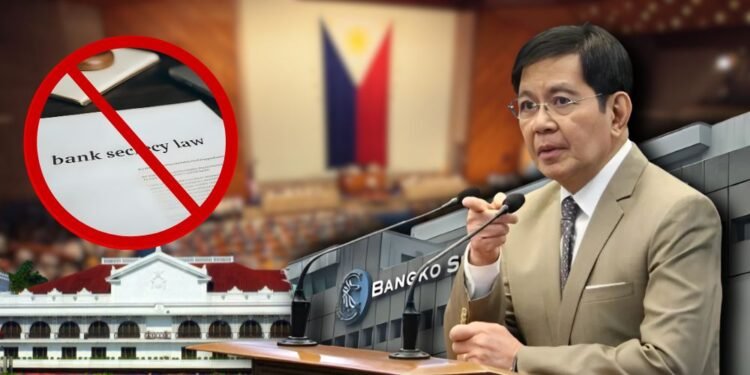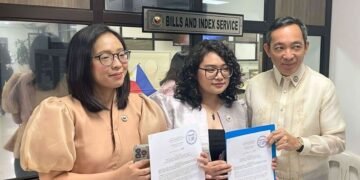Senator Panfilo “Ping” Lacson is once again cracking down on corruption—this time by targeting the decades-old secrecy laws that shield public officials’ bank and foreign currency deposits from scrutiny.
Lacson filed two separate bills that aim to exclude all government officials and employees—elected or appointed—from the protections of the Bank Secrecy Law (RA 1405) and the Foreign Currency Deposit Act (RA 6426).
The goal: make it harder for corrupt officials to hide illicit wealth behind confidential accounts.
Two bills to remove secrecy protections
“This bill seeks to exclude government officials and employees, whether elected or appointed, from the coverage of the Bank Secrecy Law to equip government authorities with the necessary tools to effectively investigate and prosecute those who misuse public office for personal gain,” Lacson said.
He emphasized that the 1987 Constitution clearly states that public office is a public trust—one that must not be used for personal enrichment.
He added that RA 1405, passed in 1955, was originally designed to protect depositor privacy, but has been “exploited and used as a shield by unscrupulous public officials” to dodge investigations and cover up corruption.
Senate Bill 38 amends Section 2 of RA 1405, adding a key exception to the law: elected and appointed officials, members of the AFP and PNP, all uniformed personnel, and employees of government-owned and controlled corporations (GOCCs) and their subsidiaries would no longer be entitled to deposit confidentiality.
Foreign currency accounts also under fire
Lacson also filed a second bill that targets foreign currency accounts. Under his proposal, officials would be stripped of the secrecy granted by RA 6426, a law passed in 1972.
He noted that despite global financial reforms toward transparency, the Philippines continues to maintain one of the world’s most restrictive bank secrecy regimes.
“The proposed bill seeks to amend the law by establishing a clear and narrowly defined exception: public officials and employees shall not be entitled to the confidentiality of foreign currency deposits,” he said.
“This amendment aligns the statute with constitutional mandates on transparency and accountability, as well as with international standards for financial oversight and integrity.”
He added that the current legal structure significantly hinders efforts to investigate tax evasion and money laundering, making it difficult for the government to track illicit transactions involving public servants.
Lacson’s proposals—long in line with his anti-corruption platform—would mark a major shift in how the Philippines monitors wealth accumulation in government, especially amid rising public demand for transparency and accountability.












